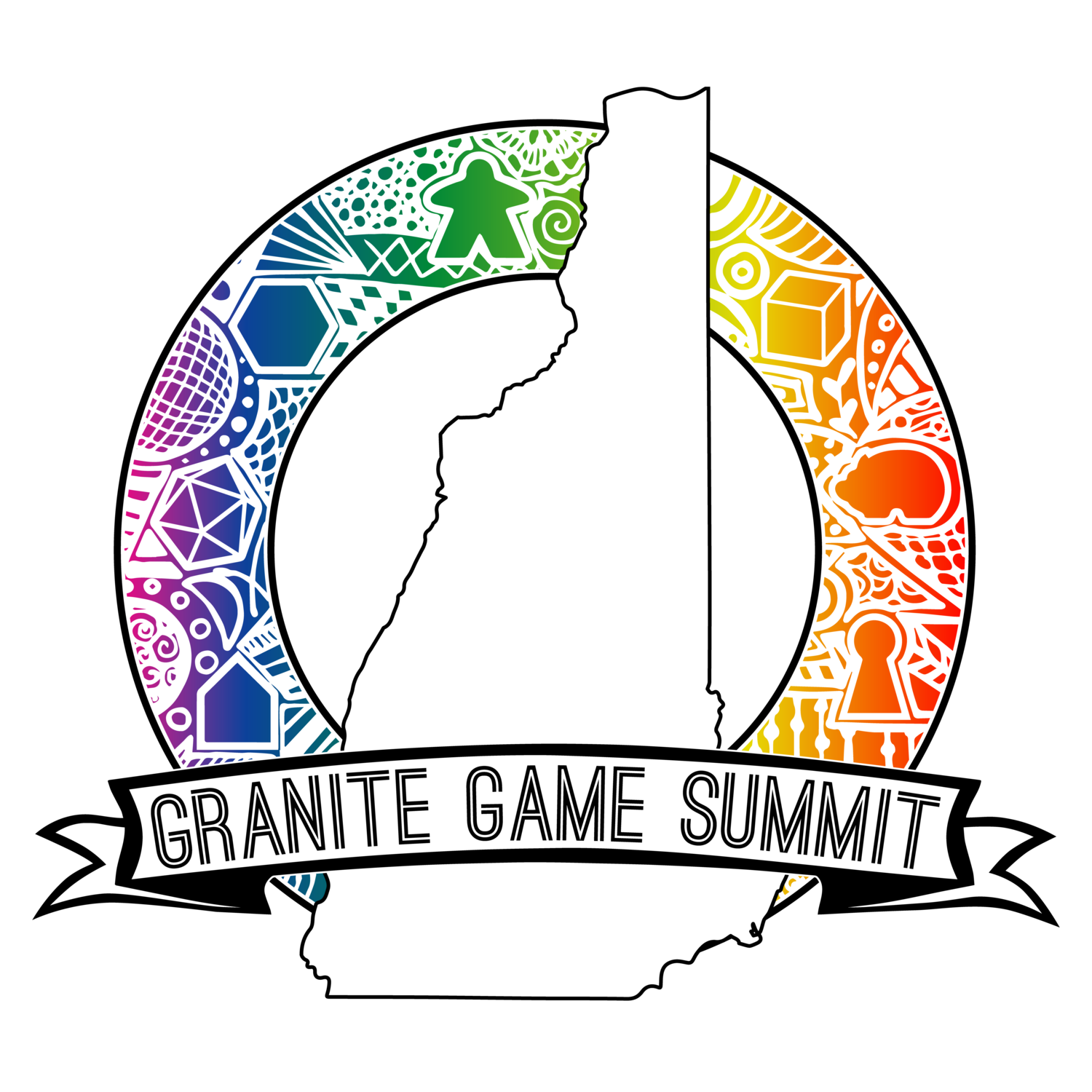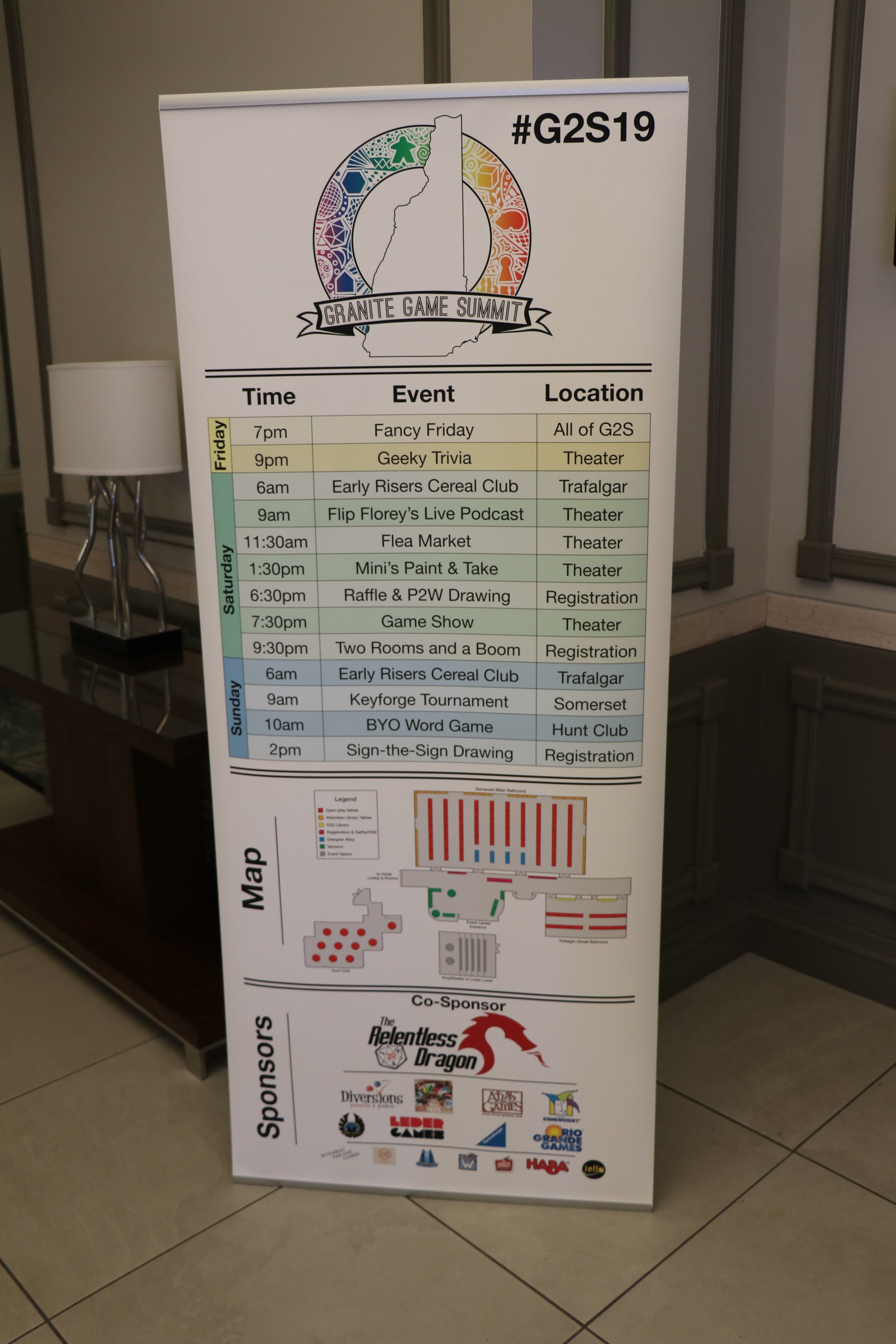Convention Planning: Event Types
Are you thinking of starting your own convention? That is amazing! From my experience, it is a fun and stressful labor of love that becomes more rewarding with each passing event. While I am always learning and growing, I can share what we have learned so far. Hopefully, this series of articles can help you create something people will be excited about! This post will help you determine what kind of event you want to run.
There are many types of tabletop gaming conventions out there. What is the right formula for the perfect convention? Well, there is none. With so many options, it is about making sure your event stands out and fills a void in the market.
See a Need, Fill a Need
One of the most import aspects is to find a target audience. It helps if that audience is starving for the thing you are about to create for them. For example, if you know there is a large war-gaming community and no convention for them to gather at, that might be a good thing to start.
Passion
The above war-gaming example would be a hard convention for me to start as I have no experience in that community or with those games, they are just not my cup of tea. There may be a huge gap there, but if I am not passionate about it, it will show in the outcome.
Format of Play
Depending on the kinds of games may dictate the format, but here are some types that are popular:
Open Play: Tables are open to all just pick a game, find a seat, and play. Definitely the easiest to organize.
Hosted Play: A set game is ready for play with someone there to facilitate.
Event Play: A scheduled game, time, and the number of players. This way players are sure about what and when they are playing.
Mixed Play: This is a mixture of the other formats. Different sections of the event space hold different formats.
Event Frequency
Decide if this is going to a one-off or a recurring event. While you don’t have to decide this up front, it will help with how you look at things if you know you will do it again. Also, you can let your attendees know if there will be future events.
If it will reoccur, with what frequency will it happen? If you are planning on yearly vs monthly, those are drastically different events. The more frequently they run, the less you want to be managing per event or you may drive yourself crazy.
Open or Invite
If you have a good network of people, you could run an invitation only event. Invitation events allow more control of scope and growth. This may equate to making it easier to organize. The exclusive nature of this event may even create a buzz about the event as people on the outside may wonder what happens on the inside.
Being open to the public can allow for more explosive growth. As more people come, the more word-of-mouth marketing happens for you. As the attendance grows so does a larger community that becomes the identity of the event.
Partnering / Expanding Existing Convention
Another way to kick-start an event is to make it a part of another event. This requires finding another convention that is interested in the games you want to host. While this may be difficult to do, it would have the benefit of having an existing following.
If you are interested in looking into this, think of the other conventions in the area that may have some overlapping attendees. For instance, if there is a board game convention that may be interested in RPGs or a comic convention that may want to have a board gaming area for their attendees. Make sure you explain how your idea would benefit them.
Attendee Estimate/Plan
Do you want to have a small intimate event or a large event with thousands of people? You may have to start off small, but even if that is the case you need to estimate how many people will come and plan accordingly.
Growing
What happens if more attendees sign up than you were expecting? Can you get more space? If so, that might be a great way to keep the initial planning simpler and more inexpensive but have the option to grow larger if there is demand. This also makes a great story when you are marketing.
Another way to handle it is having a scarcity issue. If a sell-out happens, then it might generate more buzz, which may help with future events. Not only with your attendees but also with your venue partners giving you leverage when talking to the larger convention spaces.
To Multi-day or Not
Some people just want one day of gaming; others want more. Running a multi-day requires more planning than a single-day convention. Some things you need to decide:
How late will you stay open? All night? (The venue may have rules limiting your options.)
What hours will you staff registration?
Will you have special events to make all days appealing?
Will you sell tickets per day and/or for the whole weekend? (Careful, weekend only passes are polarizing.)
There are benefits to running a multi-day. You can usually get a better deal with the venue. This is especially true if the event space is making money in different ways, for instance, selling rooms in a hotel or selling food.
Venues
The venue plays a big part in determining the feel of your event. There are many places you can host your event like:
Hotels
Schools / Universities
Churches
Dedicated event centers
Mixed event spaces
Businesses with large spaces available
An event hosted at a hotel will feel very different from one hosted at a local corporation. Neither option is right or wrong, but there are a few things that any space should have. A good venue will have these important features:
Ease of access (public transportation, free parking, near an interstate)
Close sources of food
Clean bathrooms, access to water, and trash service
Expansion (ability to grow not only year-over-year but within one event in case sales outperform expectations)
Smaller areas (good for break-out games but better for introvert decompression)
Close access to hotel rooms (if running multi-day)
Special Offerings/Events
Offering more than just games is a great way to help sell tickets and possibly gain additional income. Some ideas for different offerings or events include:
A game library
Play-to-Wins
Raffle Items
Game Auction
Merchandise
Scheduled Games
Hot Games
Learn-to-Play
Tournaments
Designer Showcase/Unpub
Vendors
Food
Talks / Panels
Sponsors
Another great way to offset costs is to get sponsors. Sponsors come in all shapes and sizes. If running a board game convention, don’t think publishers are your only source. Here are some ideas for sponsor sources:
Retailers
Publishers
Distributors
Manufacturers
Media
Food / Beverage Providers
Before you reach out to potential sponsors, make sure you have a clear idea of what their sponsorship will get them. The more up front and thought out your sponsorship packages, the more likely sponsors will see their benefits. Some quick ideas for sponsorships:
Overall Sponsorship Levels (highest being the most expensive but gets the most benefits)
Badge / Lanyard
Prize Donation
Special Offering/Event Sponsors
Conclusions
So many variables go into creating the feel of an event. Each of these decision points is important for creating a memorable event. Figure out what will work best for you and your potential audience.

